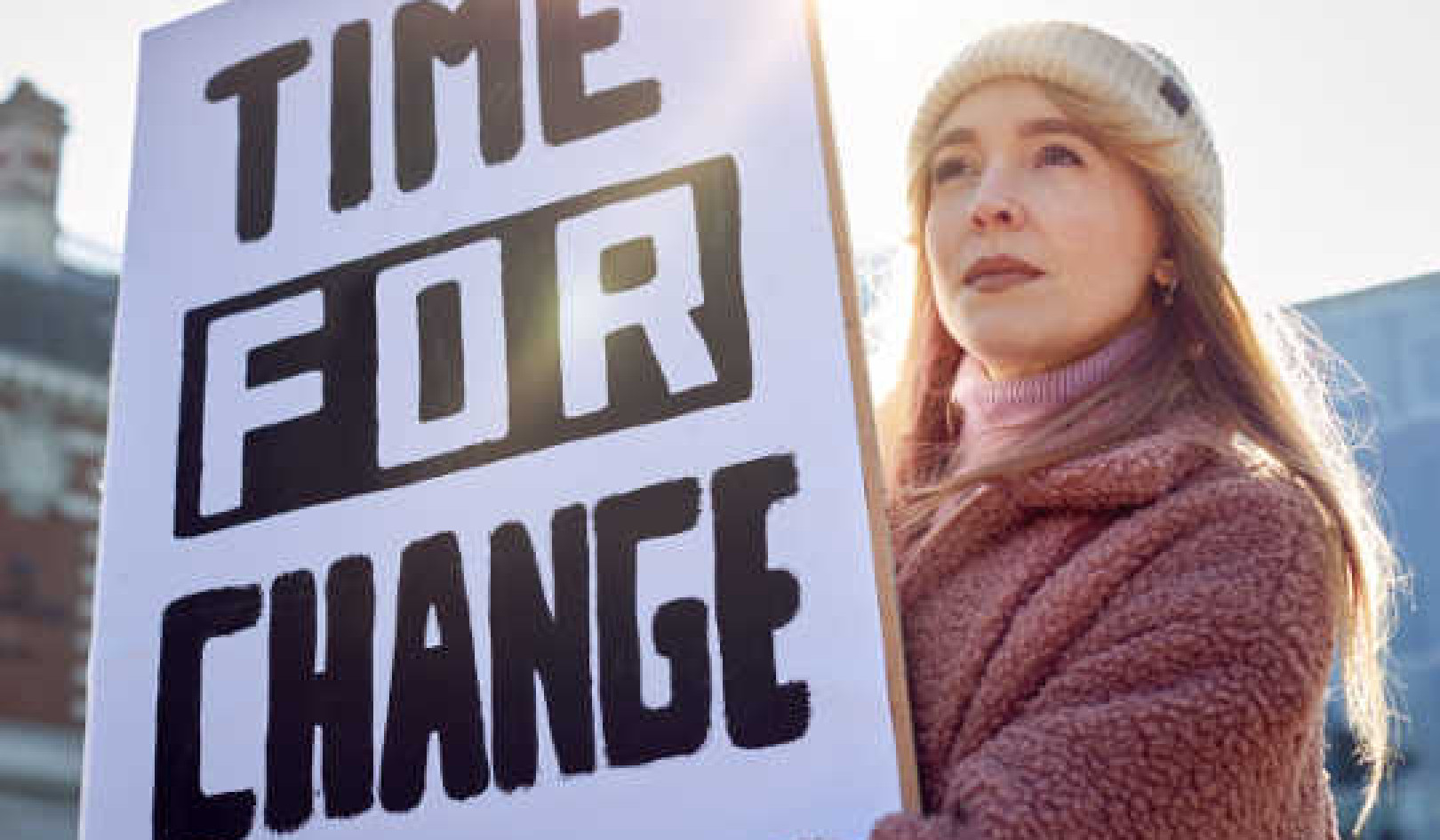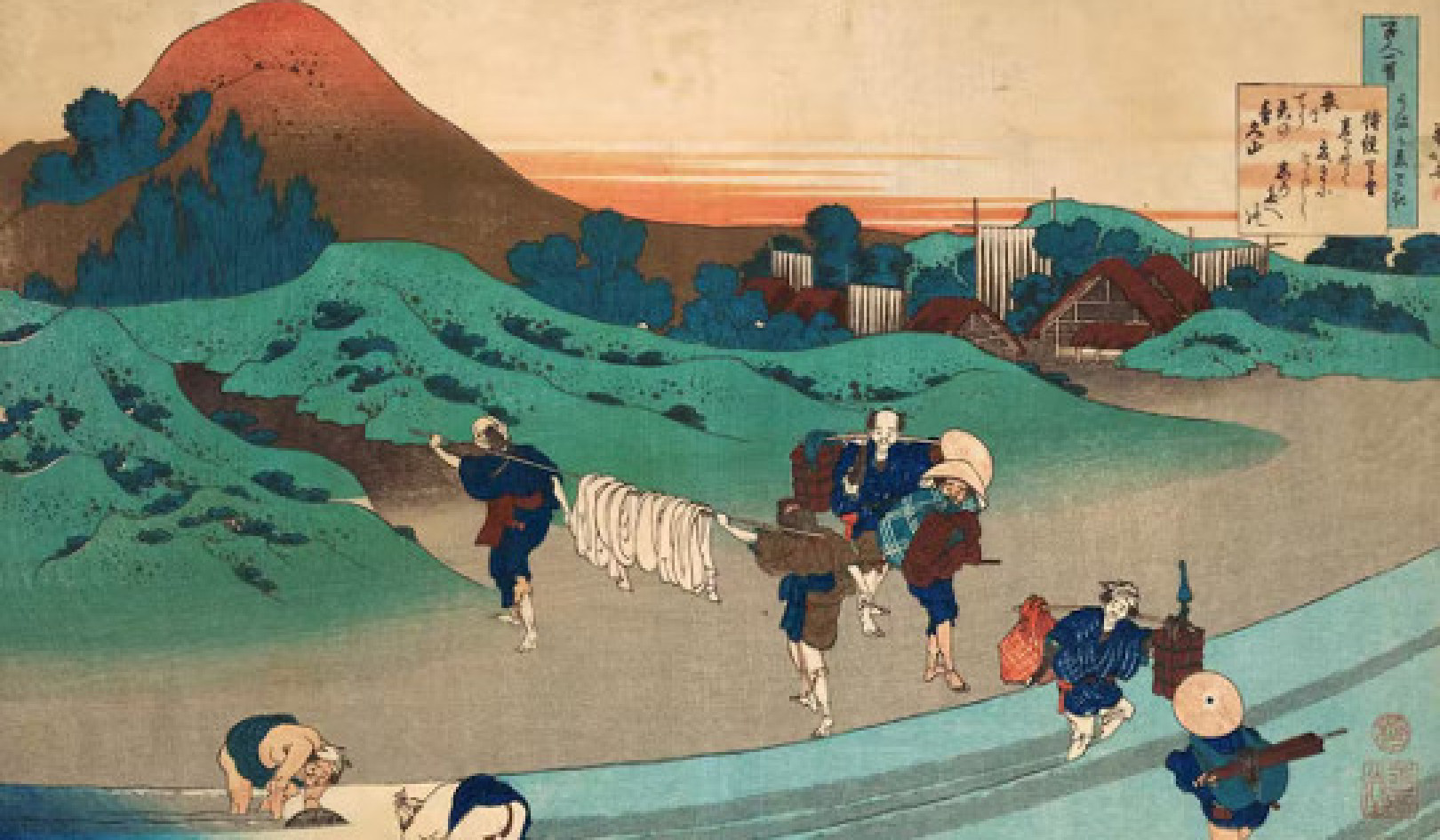
As a Buddhist who’s passionate about social and political engagement, I’m fascinated by the contemporary relevance of Buddhist teaching. The Buddha didn’t say much about evil, but he often spoke about the three roots of evil or “three poisons” of greed, ill will, and delusion. When what we do is motivated by these poisons, the inevitable result is dukkha: “suffering,” but not just suffering at the level of each individual.
All institutions are the mirror image of the motivations that make them work. So when politics and economics are based on the worst aspects of human nature, the inevitable result are societies riddled with inequality and violence.
Nothing Less Than Radical Transformation Is Called For
The Buddhist emphasis on motivation sheds new light on the key questions of our time: the destruction of the environment, the exploitation of human beings, and the use of deception to quell dissent and debate. If institutionalized greed, ill will and delusion lie at the root of these problems, a radical transformation is called for. Nothing less will do. Our present economic system institutionalizes greed; our addiction to militarism institutionalizes ill will; and the corporate media institutionalize delusion.
If greed is defined as “never having enough,” then that also applies collectively: corporations are never large enough or profitable enough, their share value is never high enough, and our GNP is never big enough. In fact, we cannot imagine what “big enough” might be. Built into these systems is the belief that they must keep growing, or else they will collapse. But why is more always better if it can never be enough?
Who is responsible for this collective fixation on growth? All of us participate in one way or another, as employees, consumers, investors, and pensioners. The problem is that we rarely take personal responsibility for results that are collective: any awareness of what is happening tends to be diffused in the impersonal anonymity of the broader economic process.
Economic, Punitive, and Military Systems Have Built-in Motivations Based on "More"
Consider the stock market, high temple of the economic system. On one side are many millions of investors, mostly anonymous and unconcerned about the details of the companies in which they invest, except for their profitability and share price. If they invest in mutual funds, investors rarely know where their money is invested anyway.
On the other side of the market, the desires and expectations of those millions of investors become transformed into an unremitting pressure for growth and increased profitability that every CEO must respond to, preferably by maximizing short-term results. Even if the CEO of a large transnational corporation wants to reduce the company’s impact on climate change, for example, any action at the necessary scale will threaten corporate profits, and they will lose their job. Corporations are legally chartered so that their first responsibility is not to their employees or customers, or to the members of the societies in which they operate, or to the ecosystems of the earth, but to their stockholders, who with few exceptions are concerned only about returns on their investment.
In short, our economic system has its own built-in motivations based on greed.
It’s the same with ill-will. One example of ill-will at work is the punitive legal system of the USA, which incarcerates vast numbers of people, mostly those on low incomes and people of color. White-collar criminals rarely end up in prison, at least for very long.
An even more forceful example is our obsession with military spending and the weaponization of security. Measured by the power of its armed forces and the resources that are devoted to them, the United States is the most militarized society in world history. Each year in the USA, as much money is lavished on the armed forces as in the next six or seven largest economies combined. In 2011, US military spending was over $718 billion. The need to “defend ourselves” apparently requires well over 700 military installations overseas, and more than 900 at home.
No Wonder There’s So Little Money Left Over For Education, Health & Social Services
To justify that colossal expense, the military needs an enemy. The end of the Cold War removed the traditional enemy of the USA, but the “war on terror” replaced it with another. This is already by far the longest war in US history, and it may never come to an end. Using drones to assassinate suspected terrorists, along with anyone else who happens to be nearby, ensures that a dependable supply of angry people are produced who have good reason to hate the USA. If terrorism is the war of the poor and disempowered, then war is the terrorism of the rich.
What about the third of the three poisons, or delusion? “The Buddha” literally means “the awakened one,” which implies that the rest of us are un-awakened. Each of us lives inside our own dream-like bubble of delusions, which distorts our perceptions and expectations. Buddhist practitioners are familiar with this problem, yet all of us live inside a larger bubble that determines how we understand the world and ourselves collectively. The institution that is most responsible for molding our collective sense of self is the media, which has become a kind of “international nervous system”.
The World Doesn’t Need To Be The Way It Is; There Are Other Possibilities
Genuine democracy requires an independent and activist press, in order to expose abuse and animate debate. In the process of becoming mega-corporations, however, the major media have abandoned all but the pretense of objectivity.
Since they are profit-making institutions whose bottom-line is based on advertising revenue, their main concern is to do whatever it takes to maximize those profits. It is not in their interest to question the grip of consumerism itself.
An important component of any education worthy of the name is to realize that many of the things that we think are natural and inevitable (and therefore should be accepted), are in fact conditioned, and therefore can be changed.
The world doesn’t need to be the way it is; there are other possibilities. The present role of the media is to foreclose those possibilities by confining public awareness and discussion within narrow limits.
The US and most other countries are dominated by power elites that are composed of governments and large corporations, including the major media. People move seamlessly between these institutions, because there is little difference in their worldviews or their goals - expansion, growth and control. Politics remains “the shadow cast by big business over society,” as John Dewey once put it.
Caught Up In The Collective Web of Delusion
The role of the media in this unholy alliance is to “normalize” this situation, so that members of the public accept it and continue to perform the roles that are required of them, especially the frenzied production and consumption that are necessary to keep the economy growing.
It’s important to realize that we are not being manipulated by a clever group of powerful people who benefit from this process. Rather, we are being manipulated by a deluded group of powerful people who benefit materially, but are also victims of their own propaganda.
Not realizing that their own well-being is dependent on the well-being of other people, they are also caught up in the collective web of delusion.
As the Viennese satirist Karl Kraus once said, “How do wars begin? Politicians tell lies to journalists, and then believe what they read in the newspapers.” The same applies to shared fantasies about the necessity of consumerism and perpetual economic growth, and the denial of impending eco-catastrophe.
If the Buddha is correct that greed, ill will, and delusion are the causes of our suffering; and if it’s true that they’ve been institutionalized in all of our systems, then these are matters for deep and urgent concern.
Awakening to the nature of these institutional poisons is just as important as the individual awakening that lies at the core of Buddhist teaching. In fact, the two are inseparable.
* Subtitles by InnerSelf
This article originally appeared on OpenDemocracy
About the Author
 David Robert Loy is a professor, writer, and Zen teacher in the Sanbo Kyodan tradition of Japanese Zen Buddhism. He focuses primarily on the encounter between Buddhism and modernity and is especially concerned about social and ecological issues. His essays and books are available on his website: www.davidloy.org
David Robert Loy is a professor, writer, and Zen teacher in the Sanbo Kyodan tradition of Japanese Zen Buddhism. He focuses primarily on the encounter between Buddhism and modernity and is especially concerned about social and ecological issues. His essays and books are available on his website: www.davidloy.org
Recommended Book:
Money, Sex, War, Karma: Notes for a Buddhist Revolution
by David R. Loy.
 David Loy has become one of the most powerful advocates of the Buddhist worldview, explaining like no one else its ability to transform the sociopolitical landscape of the modern world. In Money, Sex, War, Karma, he offers sharp and even shockingly clear presentations of oft-misunderstood Buddhist staples - the working of karma, the nature of self, the causes of trouble on both the individual and societal levels-and the real reasons behind our collective sense of "never enough," whether it's time, money, sex, security... even war. David's "Buddhist Revolution" is nothing less than a radical change in the ways we can approach our lives, our planet, the collective delusions that pervade our language, culture, and even our spirituality.
David Loy has become one of the most powerful advocates of the Buddhist worldview, explaining like no one else its ability to transform the sociopolitical landscape of the modern world. In Money, Sex, War, Karma, he offers sharp and even shockingly clear presentations of oft-misunderstood Buddhist staples - the working of karma, the nature of self, the causes of trouble on both the individual and societal levels-and the real reasons behind our collective sense of "never enough," whether it's time, money, sex, security... even war. David's "Buddhist Revolution" is nothing less than a radical change in the ways we can approach our lives, our planet, the collective delusions that pervade our language, culture, and even our spirituality.
Click here for more info and/or to order this book on Amazon.
























